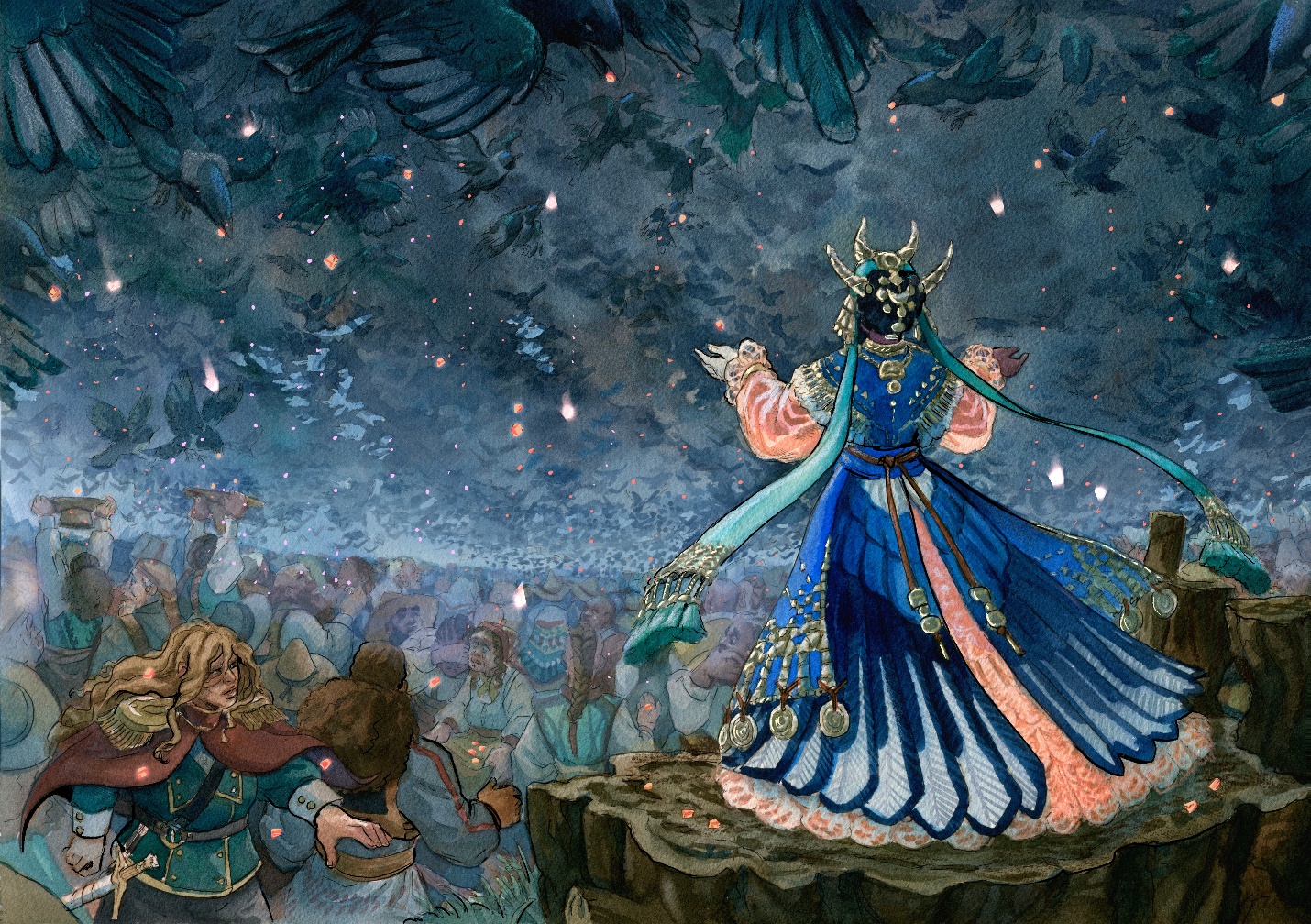Unknown tag: [ text:list-style ]
Unknown tag: [ text:list-level-style-bullet ]
Unknown tag: [ style:list-level-properties ]
Unknown solo tag: [ style:list-level-label-alignment ]
Unknown solo tag: [ style:text-properties ]
Unknown solo tag: [ text:bookmark-start ]Chapter 82:
Sunshower
That morning on Sunday dawned like any day before it, since the beginning of Hiren. The sun, golden like summer butter, rose without haste or worry over the familiar homesteads and fields, and it glowed on the pines of the forests, and crowned Tiding Range in a warm pink glow.
Poor Loom, hidden away in the grove, got the light later than other houses, but when it did touch on the gables and soak through the window, Moth was awake to see it.
She held on, with weary hands, to the single bag of sunstones, pensively looking out the window – hoping, desperate, for any returning magpie with a message from Lord Correb.
There was no answer, no escape plan.
Her heart was low and sick. Her eyes wandered to the map she had, the map of the tunnels in and out of Hiren – perhaps she should run? The idea had played itself over and over in her head.
‘Whatever happens, go and face the farmers on Sunday.’ Mrs. Halig had adjured Moth in her dream.
She knew she had to face Hiren. They deserved some answer, even if it shattered their spirits.
But god it was so hard to start, to stand up and begin the day – Moth sat in her nightgown by the window and wished Nokk and the magpies were there to greet her with merry mimicry. But she felt fully alone, it was hard to be awake and
